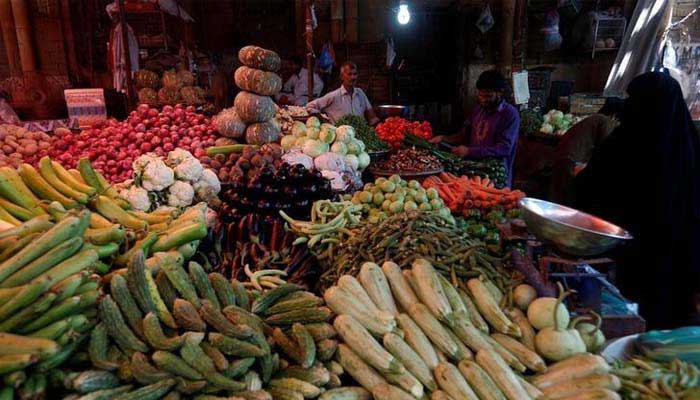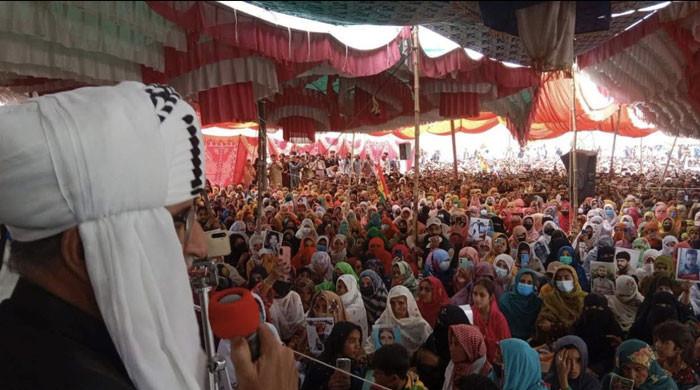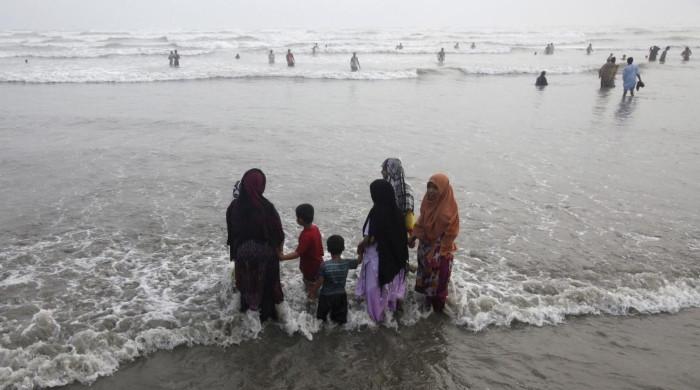Is PTI losing the battle against inflation?
Items which impact the welfare of the poorest of the poor have seen a spike in prices including sugar, edible oil, pulses among others
February 08, 2020

The increase in consumer prices was recorded at 14.6 per cent in January. This was the highest growth in consumer price index in about 12 years.
Items which impact the welfare of the poorest of the poor have seen a spike in prices including sugar, edible oil, pulses, wheat, rice, flour, vegetables, fruits, meat, chicken, and milk. Despite an effort to protect the lifeline consumers from hike in energy prices, one observes prices of LPG increasing.
The pain is not expected to be relieved anytime soon as the full year inflation forecast by the International Monetary Fund (IMF) is between 11 to 13 per cent.
It is clear from the recent high-level cabinet meetings that the prime minister is concerned. The coalition members are using this to their advantage, and so are the members from opposition parties in the parliament. Most prime time talk shows, during January, highlighted skyrocketing prices as a key issue that could bring pressure on the government, not just from the citizens and voters, but also from other power centers in Pakistan.
It will be fair to say that the initial policy response to inflation has been left by the government to the central bank, which in turn continues to keep a tight monetary policy with high rates of interest. However even the central bank acknowledges that high policy rate without a fiscal and administrative response cannot be a remedy for growing prices seen in food, utilities, and energy sector.
Moreover, the monetary policy statement in January did not give much good news. It expects a further increase in prices of food and utilities before things start to settle down latter in 2020. The policy also doesn’t show a roadmap as to how success may be achieved and perhaps this is something that the ministry of finance will have to explain. Furthermore, any volatility in oil and energy prices due to geo-political situation or otherwise also needs to be studied as a possible risk to Pakistan’s macroeconomic stability.
Our analysis reveals that inflation in recent months has jacked up the cost of doing business. This is being seen in the form of increased prices of imported and local inputs, gas, electricity, taxes faced by businesses, and rise in compliance costs for tax payers.
The impact of devaluation on inflation was also visible in the last quarter. This has hit the large scale manufacturing hard with automobiles, iron and steel, food, beverages, fertilizers, chemical, pharmaceutical, and leather sectors posting negative 5.93 per cent growth for the period July to November 2019. For the same period borrowing by the private sector for working-capital or expansion of businesses declined by 71 per cent – partially due to high interest rates.
Some businesses are also finding it hard to payback the sums borrowed in the past for output and productivity enhancements. This is reflecting in an increase in non-performing loans faced by the banking sector, and discouraging performance in the industry and services sectors is bound to reflect in job losses.
Under such a scenario, and possibility of backlash, it is becoming highly unlikely for the government to continue passing the impact of high energy costs to the end-consumers. Also, it may not be possible for them to continue to make up for the missed tax revenue targets by arbitrarily increasing non-tax sources of revenue.
It is best now to be candid with the IMF, and suggest a possible relief in key targets, which are directly or indirectly impacting the welfare of the poorest. Then there are a few governance-related measures which the government will need to expedite on their own. For example, during the previous review, IMF mission expressed surprise that there were delays in releases of development budget – key to keeping unemployment levels low especially in times of economic downturn. Also, it was highlighted that there have been delays in expediting initiatives under the poverty alleviation Ehsaas programme, which will expand the social safety nets.
There are also certain measures which federal government needed to ensure in coordination with the provincial administrations. For example, the gaps seen in the current price monitoring system haven’t been plugged and could cost the government dearly as we approach the holy month of Ramadan. It is during times just prior to Ramadan that hoarding is seen most intensively. The proceedings from the recent Economic Coordination Committee (ECC) meetings have shown government’s inability to correctly forecast and manage the buffer stocks in wheat and sugar. One only wonders if the new IT-based price complaint apps, launched to keep a check on prices, will be able to deliver the magic in time.
Where ECC should focus immediately is to ensure that National Price Monitoring Committee meets on a regular basis. Alongside, it is important to pay heed to the recent assessments and recommendations by the Competition Commission of Pakistan (CCP) to check hoarding and cartelization. They have provided detailed assessments which goes beyond food sector and calls for protecting the consumers from malpractice seen in banking operations, cellular phone companies, and enterprises in cement, sugar, refinery, LPG, iron and steel, jute, and fertilizer sectors.
We have also not heard if CCP’s recommendations to Ministry of National Food Security & Research have seen partial or fully implemented. For example, an evaluation is much needed to see if sasta bazaars, itwar bazaars, and other subsidized outlets including Utility Stores Corporation have been able to provide adequate quality supplies at affordable prices.
In most prior analyses of price hike under the PTI government one reads that this trend was also attributed to the closure or reduction in trade with neighboring countries. However, no such analysis goes a step further to highlight that it was a mistake to hurt consumer welfare in Pakistan by putting restrictions in the past on trade via Torkhum and closure of trade at Wagah-Attari gate. Shutting down trade with India led to food shortages and price hikes across Pakistan, but this mistake was only realized once hospitals and patients started to report a shortage of life saving drugs in the market.
Finally, all provincial chief ministers will do good to put in place an independent price monitoring mechanism. The prices and supplies of daily-use commodities may be verified through sources other than government officials. The prices from both official and independent source should be uploaded on an online dashboard in real-time for all districts. All deputy commissions should prepare a weekly report on any violation of official price list for essentials. This report may be reviewed by chief ministers, while they chair the weekly cabinet meetings.
Such measures will strengthen social accountability and help elected leadership to better respond to the hardships faced by citizens during times of low economic growth and inflation.
Dr Ahmed is an Economist and author of ‘Pakistan’s Agenda for Economic Reforms’ published by the Oxford University Press. He tweets @vaqarahmed











